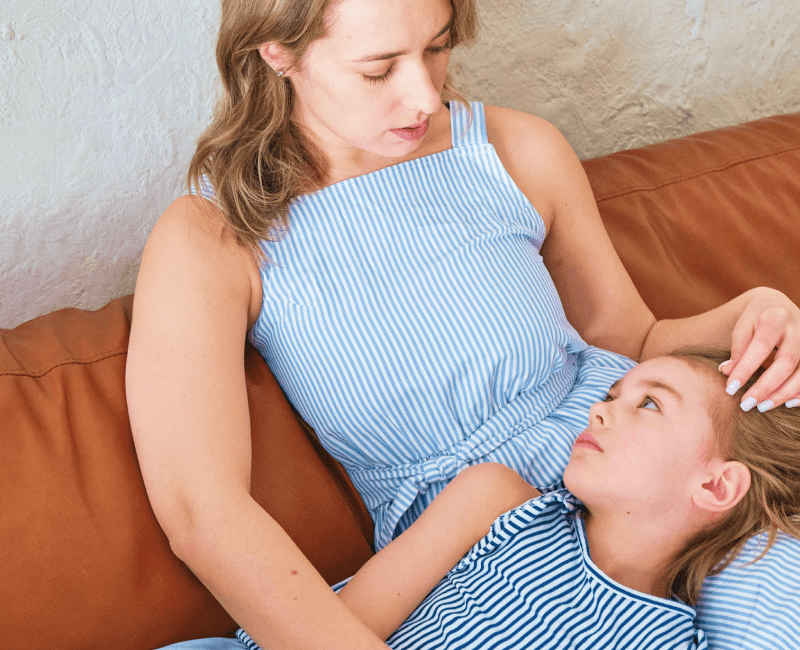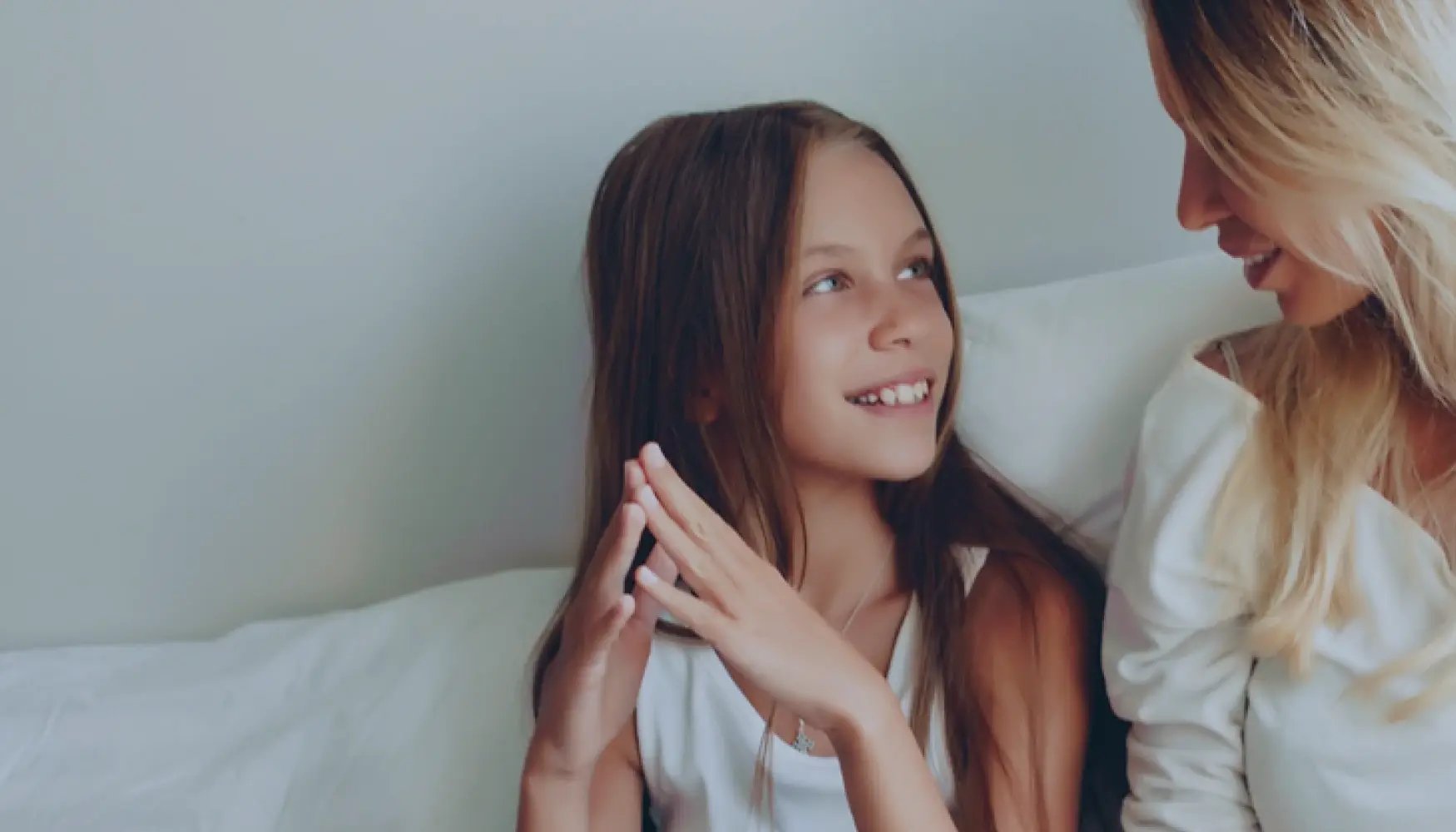Is my child’s counselling working?
If your child has recently started counselling, it can be an anxious time. Perhaps it felt like they were at a mental health ‘crisis point’ when you booked the first session and the pressure was on to get them help.
“I’m not sure that they actually need counselling”
For those who struggle with their mental health, it often comes in waves. At some points we feel able to face the world, while at others, we feel completely overwhelmed. If your child’s mental health has improved since their first session it may be that they’ve naturally reached a period of calm or it may be that the counselling has already had an impact.
In either case, it’s important to keep the sessions going. If we use the analogy of the calm before the storm, then this is the best time for the counsellor to be supporting your child. We’re much more able to explore and reflect on our feelings when we’re psychologically strong, so by continuing with the sessions when your child is doing okay, you’re arming them to be more prepared for the next wave. If the sessions are already making a difference then it’s just as important that your child continues. We recommend no less than six sessions for counselling to have an impact and the counsellor will be working carefully with that time frame in mind. If the sessions are cut short, the improvements to your child’s mental health are likely to be short-lived.
“My child’s mental health hasn’t improved”
Conversely, it’s not uncommon for parents to say that they’ve not seen a difference, or their child’s mental health seems like it’s actually getting worse. This is perfectly normal. If we use the analogy of counselling being a bit like cleaning out the garage, you have to get everything out and cause a bit of a mess, in order to put it back neatly. There’s points when the garage looks worse than when we started, but we know when we’re finished it will be worth it. If your child’s mental health has taken more of a dip, it may be that they’re finally dealing with some of the thoughts and feelings they’ve been trying to keep in.
If your child seems the same as before, it may be that they’re taking a while to open up to their counsellor. For them, those first few sessions may be about building up that trust so the real work can begin. It can feel frustrating if you don’t see progress quickly, but it’s so important for your child that you’re patient. I’ve worked with children who have sat silently for the first six sessions, only for us to go on and do some incredible therapeutic work after that. It took them that long to decide that the sessions were safe and I was worthy of their trust.
“All they do with their counsellor is talk or play games, they haven’t learnt any strategies”
Quite often when I speak to parents, they’re keen for their children to learn lots of strategies to support their mental health. Strategies can be really helpful, but sometimes there’s more important work to do first. If your child broke their leg, we wouldn’t just hand them some crutches as a ‘strategy’ to walk again. We’d also want to X-Ray their leg and probably put it in plaster, so we know they won’t be living with a broken leg forever. Counselling is much the same. We’d rather help your child to get to the root of their anxiety so we can help to reduce it, rather than give them strategies to cope everytime it becomes overwhelming.
Often the counsellors will use the activities we have on the Mable platform. For our younger clients we might play the games as a way to strengthen our relationship so they trust us, or to balance the session out if we’ve covered some difficult subjects. We also have lots of creative resources that we use to explore thoughts and feelings. These are a key element of art therapy and play therapy, with children exploring their mental health through the safe lens of storytelling or picture making. If they leave the session saying they’ve ‘just played’ then it’s likely some great therapeutic work actually took place. You can find out more in this blog by Mable counsellor Vanessa Crutchlow: Using Stories and Fairy Tales in Children and Young People’s Counselling.
“I don’t know what’s happening in sessions, so how do I know if they’re working?”
As a parent, I understand how difficult it can be to relinquish control. We want to know what our child is saying to their counsellor and what the counsellor is saying to them. Maybe we’re feeling powerless and would really like the counsellor to tell us what we need to be doing to support our child.
Our counsellors understand how stressful this can be and they will try to share what they can with you. After six sessions you’ll have the chance to have a check-in call and they’ll talk to you about how things are going. However, in these early sessions it’s important that the counsellor focuses on building the relationship with your child so they know it’s a safe space where they can open up. If the counsellor involves the parents too much at this stage, the child will see this as another situation where the adults are controlling their lives and making decisions about them. Counselling will only work if the child feels fully in control and knows that the counsellor is there for them. Once that trust is established, the counsellor will be able to involve the parent more.
“My child is reluctant to go to their session”
This is a tricky one. We never want children to feel ‘forced’ to do counselling because if they do, they’ll close up and the counsellor will be unable to help. If a child really doesn’t want counselling we’ll always tell the parent to respect their wishes, and hopefully their child will come round to the idea in their own time.
However, some children and young people will have the first session or two, find it really helpful but then resist it when it brings up thoughts and feelings that make them uncomfortable. If your child is starting to show reluctance about going to counselling, try explaining to them that it might feel hard, but by talking about their issues they will start to feel better. You can also remind them that they’re in control of the sessions, if they’re finding any parts of it hard they can tell the counsellor and they can talk about it together.
We all need a happy ending…
Our counsellors are always ‘working towards an ending’ in their sessions. This means if they open up any ideas or things to explore, they’re already thinking about how they will carefully conclude that work in order to support your child’s mental health. If children or young people stop their sessions abruptly, it may mean there’s lots of unfinished work that won’t be concluded. They may have begun to look at difficult subjects that are best explored in the safety of the counselling session.
If a child is going to stop having sessions it’s really important they have a final session where the counsellor can conclude the work they’ve done together. Many children we see have had lots of experience of difficult endings - perhaps through bereavement, a family break up or even the end of a friendship. Having what counsellors call a ‘successful ending’ can often be the most powerful part of the process, and something we should always try to enable.
If you do have any questions please get in touch, we'd be happy to talk it through.
- General mental health (32)
- Counselling (25)
- Anxiety (11)
- Generalised anxiety (10)
- Depression (7)
- Anger (4)
- Relationship Issues (4)
- Self-Harm (4)
- Suicidal Thoughts (4)
- Autism (3)
- Classroom Behaviour (3)
- Eating Disorders (3)
- Eating Issues (3)
- Loss (3)
- Phobias (3)
- Safeguarding (3)
- School Issues (3)
- LGBTQ+ (2)
- SEMH (2)
- SENCOs (2)
- Secondary & Sixth Form Schools (2)
- AAC (1)
- Absenteeism (1)
- Autism Support (1)
- Looked After/Adopted (1)
- OCD (1)
- Primary Schools (1)
- Social Communication (1)
- Trauma (1)
You may also like
These related stories

Protecting your child’s mental health when they’re using social media

3 ways to start a conversation with your child about mental health
